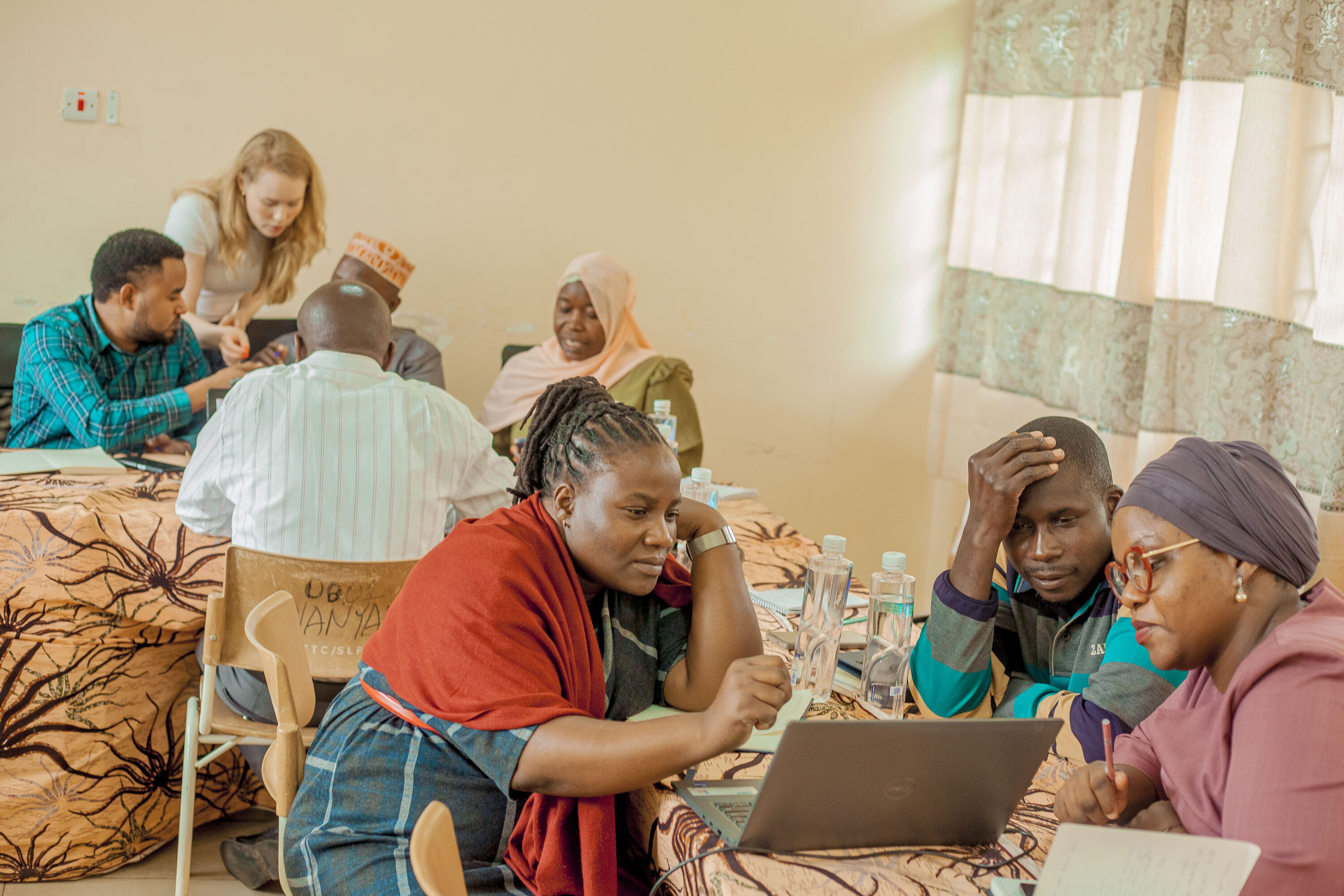Entrepreneurship and innovation are central to Tanzania’s economic development and job creation (Kalimasi, 2018). Entrepreneurship offers a way to address youth unemployment and poverty (Donald et al., 2024; Du Toit et al., 2023; Tutuba, 2023). The Tanzanian government has also recognized the importance of entrepreneurship education in reducing poverty and creating employment opportunities. It has included entrepreneurship education in its education policy and national development plans, such as Vision 2025 (Du Toit et al., 2023).
This article examines the current state of entrepreneurship education in Tanzania at the tertiary and vocational education levels, teacher competence, the significance of entrepreneurship for the country, and the challenges that must be addressed to maximize the impact of entrepreneurship education.
Entrepreneurship Education in Teacher Training, Higher and Vocational Education
Entrepreneurship education is integrated across all levels of education in Tanzania (Ogondiek, 2024; Du Toit et al., 2023). While dedicated specialists in entrepreneurship education are not yet widely represented among teaching staff, this presents a valuable opportunity for further development. Notably, teacher training programmes in Morogoro include the possibility to study entrepreneurship education, offering important support for the enhancement of entrepreneurial competencies within vocational teaching (Morogoro Vocational Teachers Training College, 2022).
In Tanzanian higher education institutions, there is an increasing recognition of entrepreneurship education as a means to promote employment (Tutuba, 2023). Students’ positive attitudes toward entrepreneurship are promising (Donald et al., 2024). Many universities have established entrepreneurship centers and incubators to support student ventures. However, a traditional teacher-centered teaching style remains a challenge. The focus should shift from knowledge acquisition to the development of practical skills and competencies (Tutuba, 2023).
In vocational education and training (VET/TVET), entrepreneurship is an integral part of the curriculum, aimed at preparing students for self-employment and meeting industrial skill demands. Entrepreneurship is embedded as a cross-cutting competence within the curricula, rather than offered as a stand-alone course. VET/TVET training aims to develop both technical expertise and entrepreneurial capabilities. In vocational institutions, entrepreneurship encompasses both theoretical understanding and practical application (Ogondiek, 2024).
The Vocational Education and Training Authority (VETA) has participated in the development of the National Entrepreneurship Training Framework (NETF) together with stakeholders such as the National Economic Empowerment Council (NEEC), the Tanzania Institute of Education (TIE), the Tanzania Commission for Universities (TCU), and the International Labour Organisation (ILO) (Kalimasi, 2018).
The Significance of Entrepreneurship and Its Education
Micro, small, and medium-sized enterprises (MSMEs) are the backbone of Tanzania’s economy, contributing significantly to GDP and employing a large share of the workforce (Donald et al., 2024; Tutuba, 2023). Entrepreneurship not only generates employment but also fosters innovation and economic growth (Ogondiek, 2024; Tutuba, 2023).
While the focus has often been on business creation, entrepreneurship education is increasingly recognised for cultivating broader life and work skills. Entrepreneurship is also seen as a means to create social value and address inequalities. Youth and women’s entrepreneurship is especially critical for reducing poverty and achieving inclusive economic development (Kalimasi, 2018; Du Toit et al., 2023).
In summary, entrepreneurship and small enterprises are vital engines in Tanzania for addressing major societal challenges, such as unemployment and poverty, while promoting economic growth, innovation, and national development objectives.
Challenges of Entrepreneurship Education in Tanzania
Despite numerous initiatives to promote entrepreneurship education in Tanzania, several challenges remain.
Although the National Entrepreneurship Training Framework (NETF) has been developed for various educational levels, its practical implementation varies and often falls short of strategic goals (Kalimasi, 2018). A lack of resources—common in developing countries like Tanzania—affects teaching quality (Muchi et al., 2024; Du Toit et al., 2023). Specific issues include unreliable electricity, poor equipment maintenance, and inadequate school infrastructure to support technology-based teaching. These factors prevent or limit experiential and practice-based learning (Muchi et al., 2024). Budget constraints in public schools also weaken education quality due to insufficient resources (Du Toit et al., 2023). Furthermore, differing interpretations of “entrepreneurship” among stakeholders (teachers, students, officials)—such as income generation, business creation, or social benefit—hinder its consistent integration into the education system (Kalimasi, 2018).
One of the most significant challenges is the inadequate training of teachers (Kalimasi, 2018; Muchi et al., 2024; Du Toit et al., 2023). Many lack the skills needed to deliver practical and experiential learning (Muchi et al., 2024), despite evidence that these are the most effective ways to learn entrepreneurship (Fayolle, 2013; Hägg & Kurczewska, 2016; Kyrö, 2015). There is also a common misconception that teachers of commercial subjects are automatically qualified to teach entrepreneurship (Du Toit et al., 2023). Effective entrepreneurship education requires dedicated teacher training that includes knowledge, skills, and attitudes specific to entrepreneurship (Kolho, 2024). Research shows that teachers trained in entrepreneurship education are better equipped to promote entrepreneurship and use diverse teaching methods (Kolho et al., 2022).
Curricular challenges also persist, as content does not always align with labor market needs (Muchi et al., 2024). At the secondary level, entrepreneurship education is often limited to a few subjects (e.g., business studies, general education), reducing accessibility (Du Toit et al., 2023). Due to rigid curricula and limited awareness of NETF, entrepreneurship is sometimes perceived merely as an “add-on” to other subjects (Kalimasi, 2018). Moreover, it tends to focus narrowly on business startups and economic aspects, overlooking the social entrepreneurship perspective and its potential societal benefits (Du Toit et al., 2023). This narrow view limits the ability to address broader societal challenges.
Traditional lecture-based and textbook-centered teaching methods still dominate, restricting experiential learning, critical thinking, and innovation (Muchi et al., 2024; Ogondiek, 2024; Du Toit et al., 2023). Significant gaps also exist in digital literacy among both teachers and students, limiting the effective integration of technology in entrepreneurship education—a reflection of wider systemic challenges (Muchi et al., 2024).
Although many graduates aspire to become entrepreneurs, their dreams are constrained by a lack of social capital and systemic barriers such as financial, legal, tax, and cultural factors (Kalimasi, 2018). In some cases, low societal prestige associated with entrepreneurship discourages students from pursuing it as a career path (Muchi et al., 2024).
Tanzania has strong political will and existing frameworks to support entrepreneurship education across educational levels, including VETA, with the goal of addressing unemployment and promoting self-employment. However, significant challenges related to curriculum implementation, teacher capacity, resource limitations, and a lack of practical student support hinder the effectiveness of entrepreneurship education and reduce graduates’ chances of becoming successful entrepreneurs. Solving these challenges requires targeted interventions at all levels of the education system.
TVET@Work Project Insights: Achievements and Challenges in Developing Entrepreneurship Education
The TVET@Work project coordinated by Häme University of Applied Sciences (HAMK) has promoted collaboration between vocational education and the world of work while supporting the development of entrepreneurship education in Tanzania. Project partners include HAMK, 3DBear, VETA (Vocational Education and Training Authority), Karume Institute of Science and Technology in Zanzibar, and Centro San Viator in Spain.
I worked as an expert in this project and interviewed Ms. Begoña Inchaurraga Grijelmo, as well as a key expert in the entrepreneurship education development project in Tanzania. She shared valuable insights into the initiative’s progress. The project focused on strengthening entrepreneurial competencies within vocational and higher education through curriculum updates, teacher training sessions, and the creation of partnerships between educational institutions and local businesses. These actions are aimed at promoting experiential learning and ensuring education better matches labor market needs.
Ms. Inchaurraga Grijelmo noted that the project significantly increased awareness of the importance of entrepreneurship education. The aim was to apply more learner-centered and practical teaching methods, institutional collaboration was reinforced, and to encourage students to become more motivated to explore entrepreneurship as a viable path. The overall learning environment became more supportive of entrepreneurial thinking.
Nevertheless, the project faced considerable challenges. Among the most pressing were limited resources, inadequate infrastructure for hands-on training, and a lack of teacher preparedness in delivering entrepreneurship education effectively. Ms. Inchaurraga Grijelmo also emphasised the complications caused by inconsistent policy implementation and differing understandings of entrepreneurship among stakeholders. Despite these issues, she affirmed that the project laid a strong foundation for the continued development of entrepreneurship education in Tanzania.
Conclusion: Unlocking the Potential of Entrepreneurship Education
Entrepreneurship education in Tanzania holds immense potential to drive the country’s economic development and shape a brighter future for its youth. While the system has notable strengths—such as the integration of entrepreneurship into curricula and strong national support—it is crucial to address the identified challenges, particularly in teacher training, practical teaching approaches, and the effective use of technology. By investing in these key areas, Tanzania can create stronger foundations for youth entrepreneurship and foster a more prosperous and innovative future.
This article has been written as part of the “Boosting Tanzanian VET-Industry Collaboration to Foster Employability and Entrepreneurship through Teacher’s Competence Development and Use of Immersive Technologies/TVET@Work” project. The project is co-funded by the European Union. https://www.hamk.fi/en/projects/tvetwork/
Views and opinions expressed are however those of the author only and do not necessarily reflect those of the European Union or European Education and Culture Executive Agency (EACEA). Neither the European Union nor the granting authority can be held responsible for them.
References
Donald, W., Mchopa, A., & Msuya, R. (2024). Entrepreneurship education and entrepreneurial intention among university students: A case of selected universities in Moshi, Tanzania. International Journal of Business and Economics Research, 13(6), 185–193. https://doi.org/10.11648/j.ijber.20241306.15
Du Toit, A., & Ntimbwa, M. C. (2023). An evaluation of the effectiveness of entrepreneurship education in secondary schools in Tanzania. International Journal of Learning, Teaching and Educational Research, 22(9), 501–519. https://doi.org/10.26803/ijlter.22.9.27
Fayolle, A. (2013). Personal views on the future of entrepreneurship education. Entrepreneurship & Regional Development, 25(7–8), 692–701. https://doi.org/10.1080/08985626.2013.821318
Hägg, G., & Gabrielsson, J. (2020). A systematic literature review of the evolution of pedagogy in entrepreneurial education research. International Journal of Entrepreneurial Behavior & Research, 26(5), 829–861. https://doi.org/10.1108/IJEBR-04
Kalimasi, P. (2018). Assessment of entrepreneurship education trends in the formal education system in Tanzania. Business Management Review, 21(2), 53–65. https://zbw.eu/econis-archiv/handle/11159/3394
Kolho, P. (2024). A vocational education and training teacher promoting students’ entrepreneurship—The development of a conceptual model. International Journal of Training and Development, 1–24. https://doi.org/10.1111/ijtd.12335
Kolho, P., Oikkonen, E., and Pihkala, T. (2022). Entrepreneurship education practices in VET: The roles of the teacher and the local region. Nordic Journal of Vocational Education and Training, 12(2), 50–74. https://doi.org/10.3384/njvet.2242-458X.2212250
Kyrö, P. (2015). The conceptual contribution of education to research on entrepreneurship education. Entrepreneurship & Regional Development, 27(9–10), 599–618. https://doi.org/10.1080/08985626.2015.1085726
Morogoro Vocational Teachers Training College. (2022). Prospectus 2022/2023. Vocational Education and Training Authority. https://www.mvttc.ac.tz/wp-content/uploads/2022/11/MVTTC-Prospectus-2022-2023.pdf
Mushi, B. & Ndimbo, G. (2024). Beyond Textbooks: Technological Barriers to Entrepreneurship Programs in Tanzania Secondary Schools. North American Academic Research, 7(4), 23–33. https://doi.org/10.5281/zenodo.10969077
Ogondiek, M. W. (2024). Role of Entrepreneurship Education on Self-Employment in Tanzania: Case of Vocational Institutions Graduates. Pan-African Journal of Business Management, 8(2), 14–25.
Tutuba, N. (2023). Entrepreneurship education in the Tanzanian higher education institutes: The learning theories perspective. Qeios. https://doi.org/10.32388/G3EGL0
Author

Entrepreneurship education as a key to future success in Tanzania

